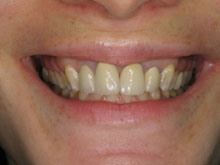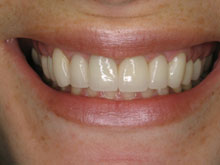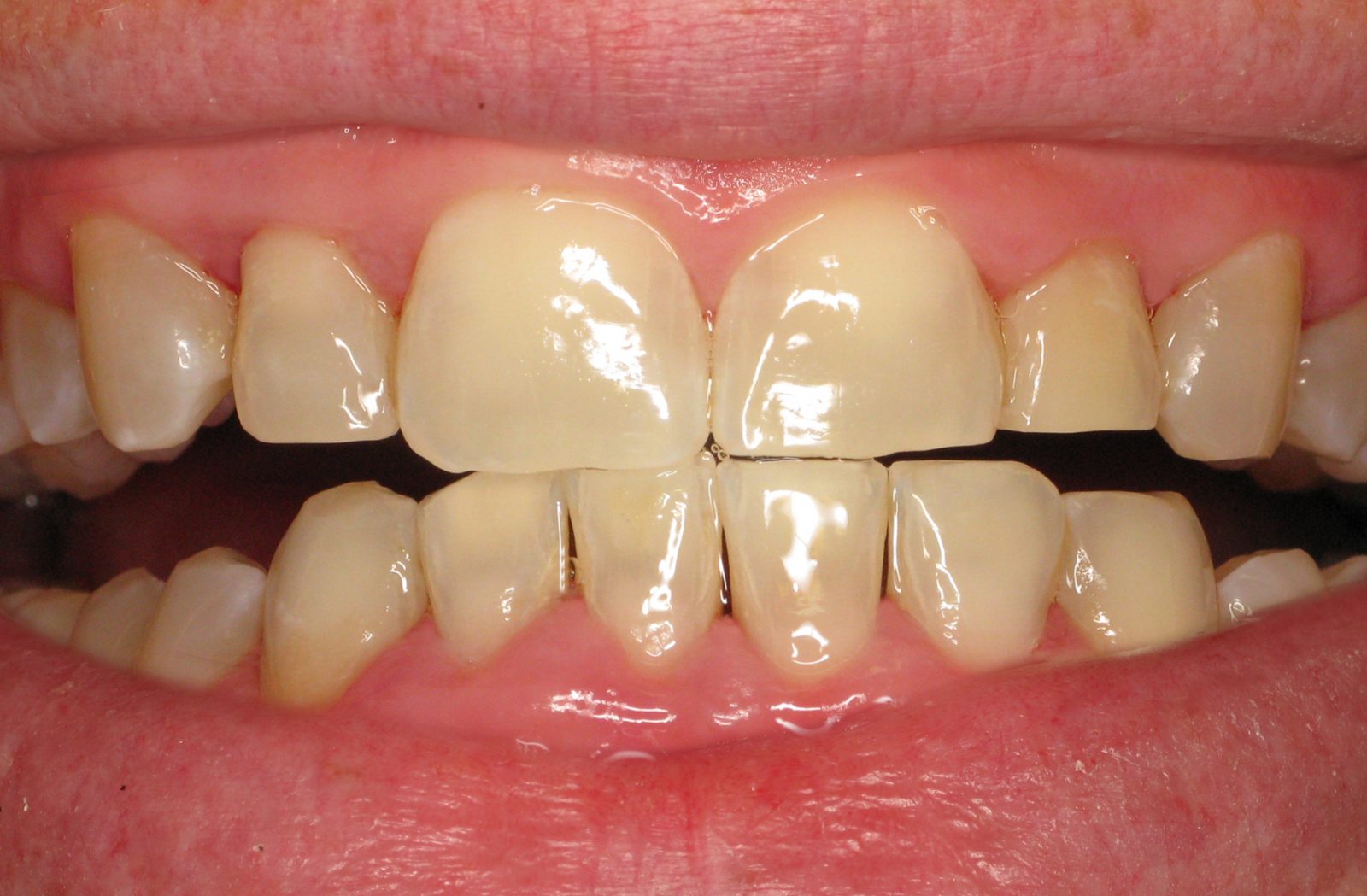How Is Bleeding Gums In Gum Disease Treated?

Treating bleeding gums resulting from gum disease involves a multifaceted approach to address the underlying causes and promote optimal gum health. Our Laser Periodontics & Gum Surgery dental professionals employ a variety of interventions tailored to the severity and stage of gum disease.
Common treatments include professional dental cleanings to remove plaque and tartar, contributing to gum inflammation. Scaling and root planing, a more intensive cleaning procedure, may be recommended to address deep pockets and bacterial buildup. Personalized oral hygiene instructions also guide individuals in maintaining effective daily care practices. In more advanced cases, surgical interventions or laser periodontal therapies may be considered to address severe gum disease.
These treatments aim to alleviate inflammation, reduce bleeding, and prevent the progression of gum disease, fostering a healthier oral environment. Regular follow-up appointments and consistent oral care routines are essential to successful gum disease management.
What Treatment Helps Address Bleeding Gums?
Addressing bleeding gums, often indicative of gum disease, involves a range of treatment options tailored to the severity of the condition. These interventions aim to reduce inflammation, promote gum health, and prevent the progression of gum disease.
- Professional Dental Cleanings: Regular dental cleanings performed by dental hygienists or dentists are fundamental in removing plaque and tartar, the primary culprits behind gum inflammation and bleeding. This preventive measure helps maintain optimal oral hygiene.
- Scaling and Root Planing: Scaling and root planing may be recommended for more advanced cases of gum disease. This deep-cleaning procedure involves removing plaque and tartar from below the gum line and smoothing the tooth roots to facilitate gum reattachment and reduce the risk of bacterial accumulation.
- Personalized Oral Hygiene Instructions: Dental professionals provide individualized guidance on proper oral hygiene practices, emphasizing effective brushing, flossing, and incorporating antimicrobial mouthwashes. Consistent at-home care is crucial in preventing the recurrence of bleeding gums.
- Antibiotic Therapy: In some cases, antibiotics may be prescribed to control bacterial infection and reduce inflammation. Depending on the patient’s specific needs, these medications can be delivered orally or topically.
- Laser Periodontal Therapy: Advanced technologies like laser periodontal therapy may be employed to treat gum disease. Laser procedures can target and remove infected tissue, promote gum reattachment, and aid in the reduction of bleeding and inflammation.
- Surgical Interventions: In severe cases, surgical procedures like gum flap surgery or pocket reduction surgery may be considered to access deeper areas affected by gum disease, remove damaged tissue, and facilitate better oral health.
- Ongoing Monitoring and Maintenance: Regular follow-up appointments are essential to monitor treatment progress and make necessary adjustments. Maintenance cleanings and check-ups help sustain gum health and prevent the recurrence of bleeding gums.
Individuals experiencing bleeding gums should seek prompt dental attention for a comprehensive evaluation and appropriate treatment recommendations. Combining professional interventions and consistent at-home care is crucial in effectively managing gum disease, alleviating bleeding, and preserving long-term oral health.
How Does Professional Dental Cleaning Help Reduce Bleeding Gums?

Professional dental cleanings play a pivotal role in reducing bleeding gums, particularly by addressing the root cause of the issue—plaque and tartar buildup. Here’s a detailed explanation of how these cleanings contribute to improved gum health:
- Plaque and Tartar Removal: Dental cleanings, performed by dental hygienists or dentists, involve the thorough removal of plaque and tartar from the tooth surfaces, especially along the gum line and between teeth. Plaque is a sticky film of bacteria that, when left untreated, can irritate the gums and lead to inflammation.
- Preventing Gum Inflammation: The mechanical removal of plaque during a dental cleaning helps prevent accumulation along the gumline. This is crucial because when plaque remains on the teeth, the bacteria release toxins that irritate the gums, leading to inflammation, tenderness, and an increased likelihood of bleeding.
- Promoting Gum Reattachment: In cases where the gums have started to pull away from the teeth, creating pockets, professional cleanings can help promote gum reattachment. By eliminating the bacterial deposits contributing to gum disease, the gums have a better chance of reattaching to the tooth surfaces.
- Eliminating Bacterial Infection: Dental cleanings target visible plaque and hidden deposits beneath the gum line. This is important for eliminating bacterial infection in the pockets between the teeth and gums, reducing the risk of persistent inflammation and bleeding.
- Polishing and Smoothing Surfaces: After removing plaque and tartar, dental professionals polish the tooth surfaces. This step not only enhances the appearance of the teeth but also makes it more difficult for new plaque to adhere. Smoothing the tooth surfaces during cleaning further deters bacterial buildup, promoting healthier gums.
- Personalized Oral Hygiene Guidance: Dental cleanings allow professionals to provide personalized oral hygiene instructions. Patients receive guidance on effective brushing and flossing techniques and recommendations for suitable oral care products. This education empowers individuals to maintain good oral hygiene practices at home, reducing the risk of bleeding gums between appointments.
By addressing these key aspects, professional dental cleanings significantly reduce bleeding gums and prevent the progression of gum disease. Regular cleanings and consistent at-home oral care form a comprehensive approach to maintaining optimal gum health and preventing complications associated with gum disease. Call (877) 440-3564 and schedule your next professional dental cleaning with our experienced dental professionals.






